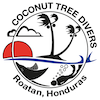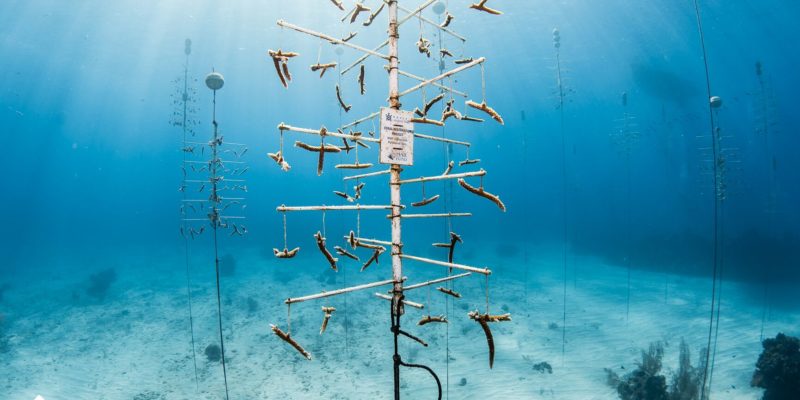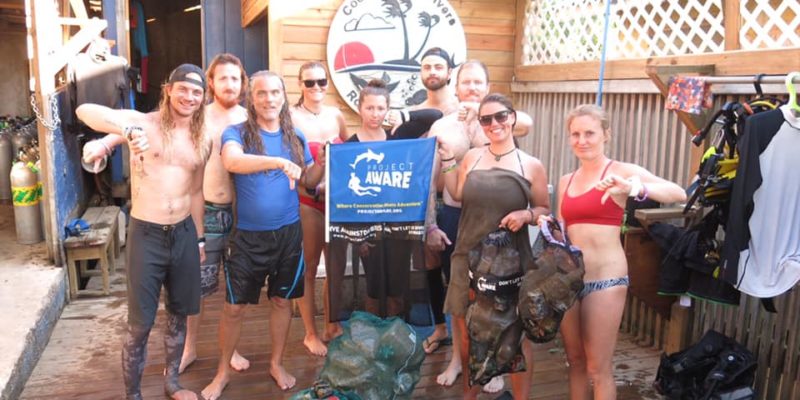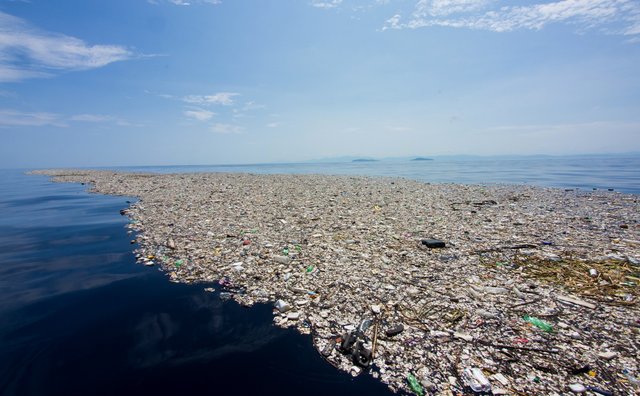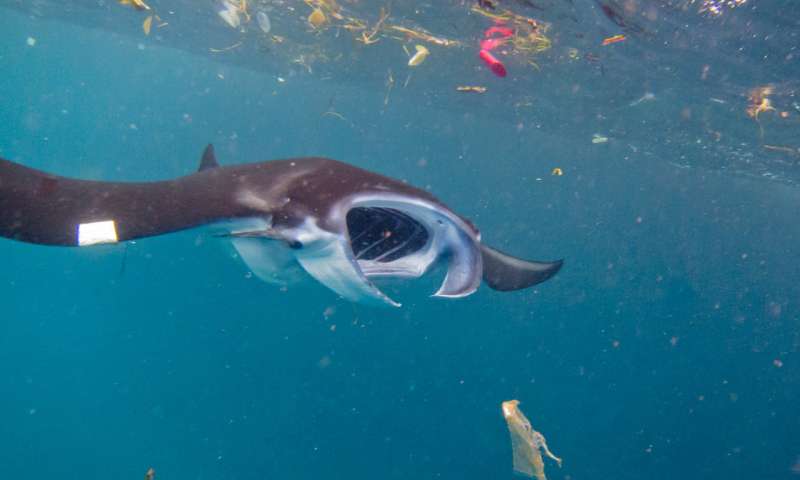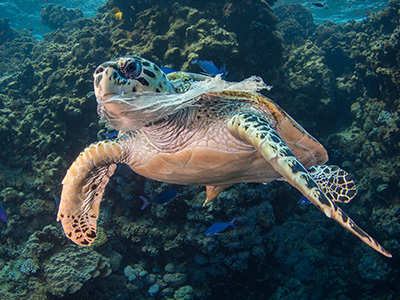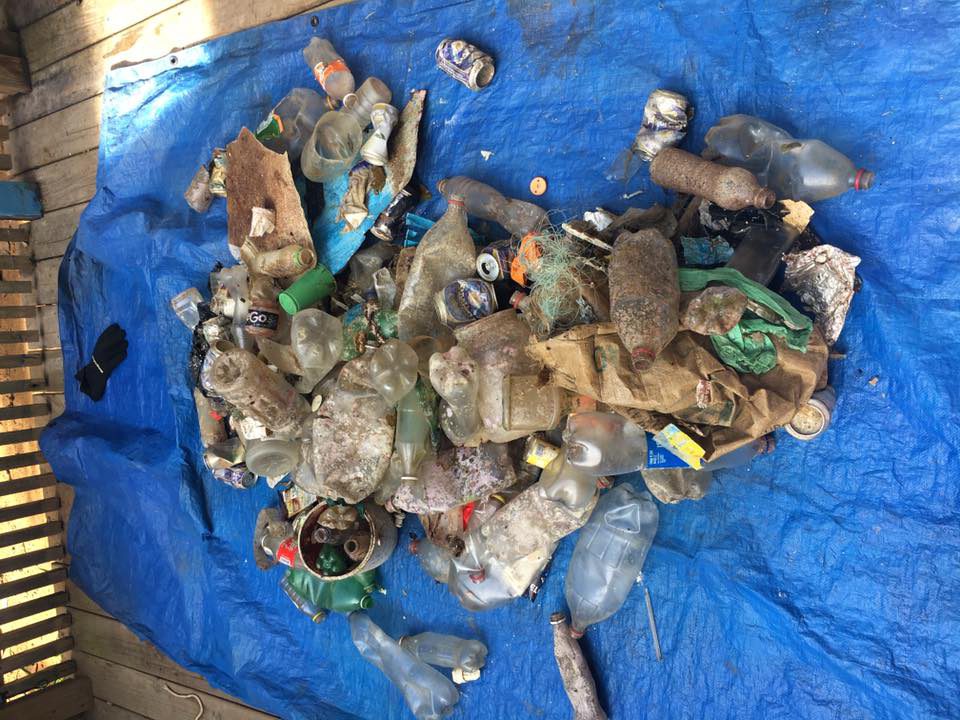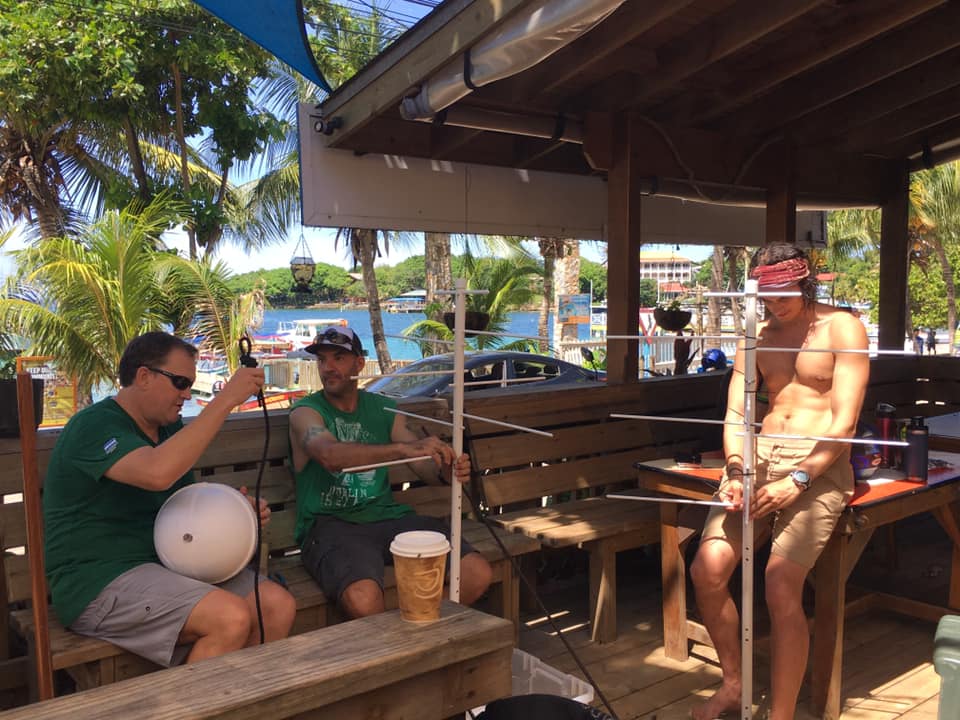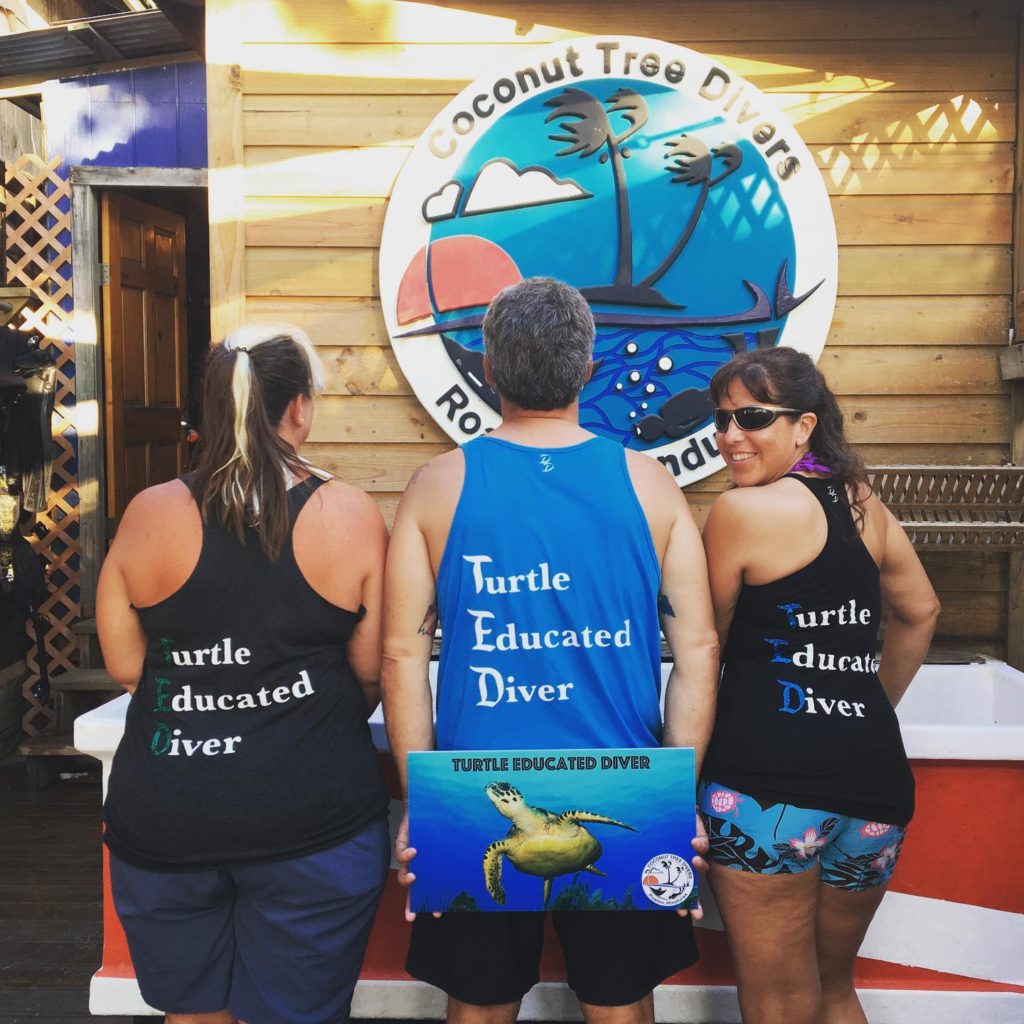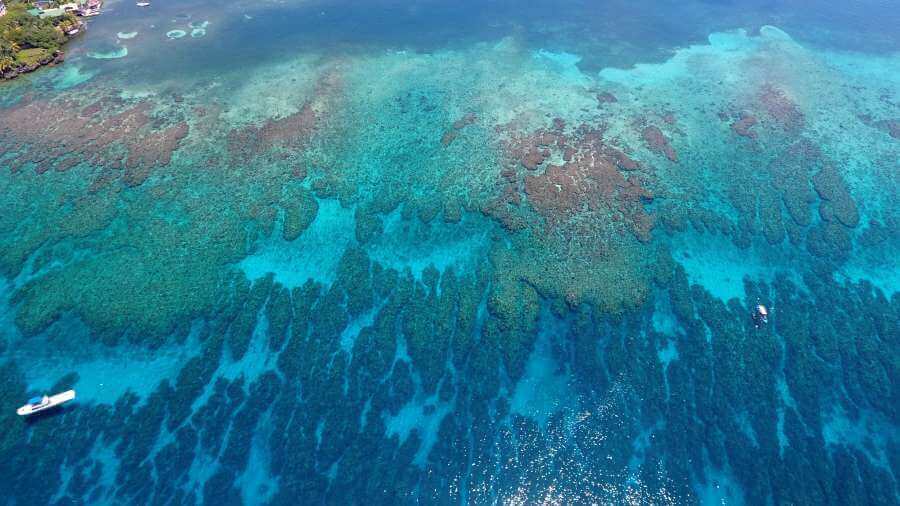All around the world coral reefs are suffering due to coral diseases, climate change, over-fishing, land-based pollution and other stressors!
Our time and effort are crucial to preserving and restoring Roatan and now there is a way you can help…
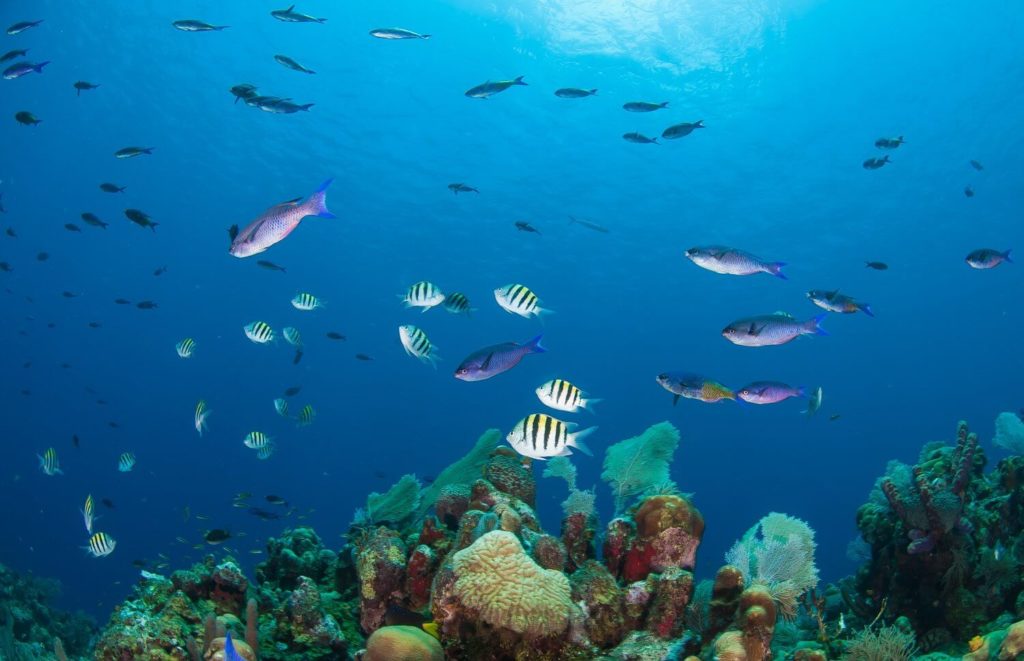
Introducing Roatan’s Coral Restoration Certification Program!
A program designed to empower divers to engage in coral conservation and provide a hands-on opportunity to grow, monitor, and outplant corals.
This program has been created by the Roatan Marine Park – an internationally recognized not-for-profit organization founded in 2005. Since then, they have protected Roatan’s marine ecosystems and worked with the community to spread knowledge and reduce hazards to the environment.
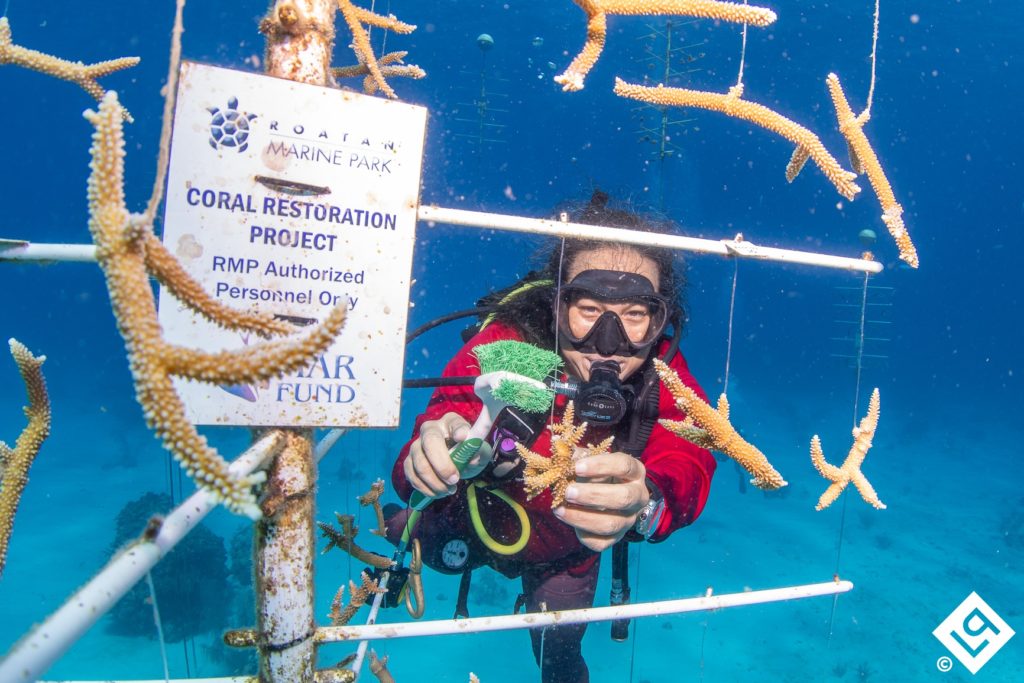
Why the need for this program?
For many years, the Roatan Marine Park has been working hard to protect the reef from multiple stressors. Now they are also engaged in rebuilding the reef through active coral restoration and created a certification course to get YOU involved.
“This project is an important part of our strategy to protect our marine ecosystems and empower people to engage in coral conservation. We hope you enjoy learning about our coral restoration program and use your knowledge and experience to help educate others about the importance of coral reefs” – Francis Lean, Executive Director, Roatan Marine Park
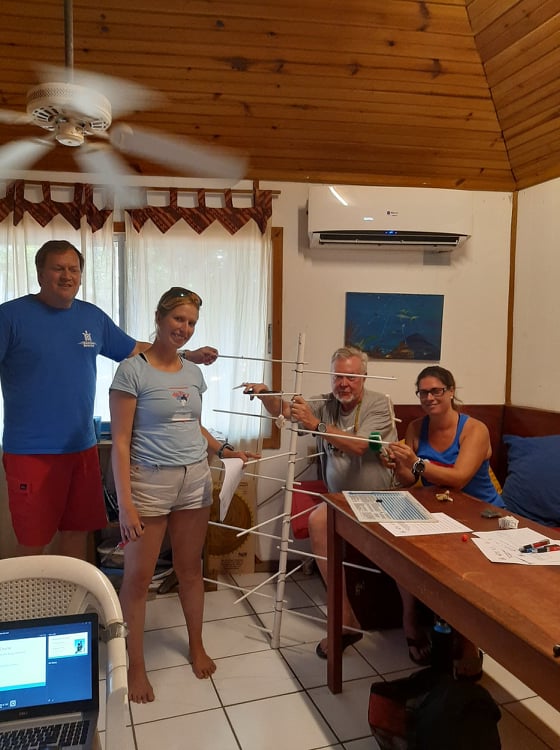
Give me the coral details
Currently, the program is focused on growing Staghorn and Elkhorn corals. Each a crucial species as they provide the three-dimensional framework vital for healthy reefs. The bad news- up to 98% of these crucial species have been lost due to the White Band Disease epidemic of the 1970′ and 80’s.
The good news- Roatan still has many resilient Elkhorn and Staghorn coral colonies, that have survived the disease epidemics and the other stressors! Even better news- these species grow FAST and the program works to preserve the genetic diversity of the survivors by growing them in coral nurseries and outplanting the coral back on the reef!
So what’s a Coral Nursery?
This is a tree like structure built to house and grow the coral and it looks like this…
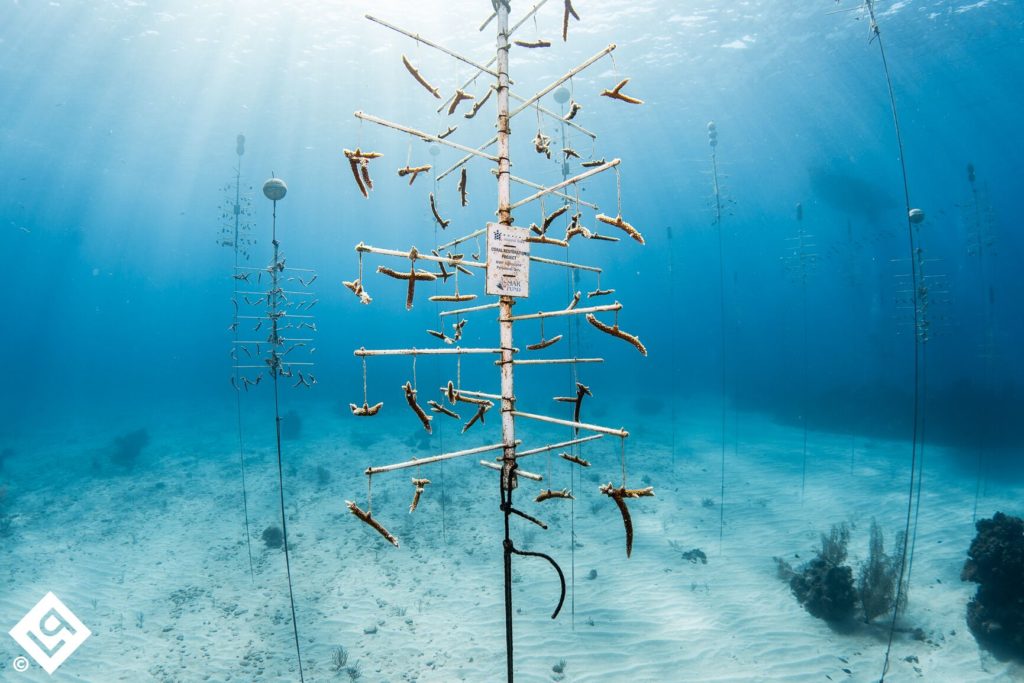
The Roatan Marine Park has partnered with local leading dive shops (like us at Coconut Tree Divers!) to build a community supported coral nursery near the SeaQuest Deep dive site.
By collecting viable coral fragments, or small cuttings from healthy colonies, we are able to stock the nursery and grow the fragments over 6-9 months into large enough pieces to ‘re plant’ back on the reef. Our work does not end there though, we make sure to monitor the growth and health of the outplanted coral to evaluate and improve our process.
The Roatan Marine Park Coral Restoration Program has successfully installed 20 coral nursery trees growing a total of 910 corals and COUNTING!! Every little piece helps to save our coral reef ecosystem!
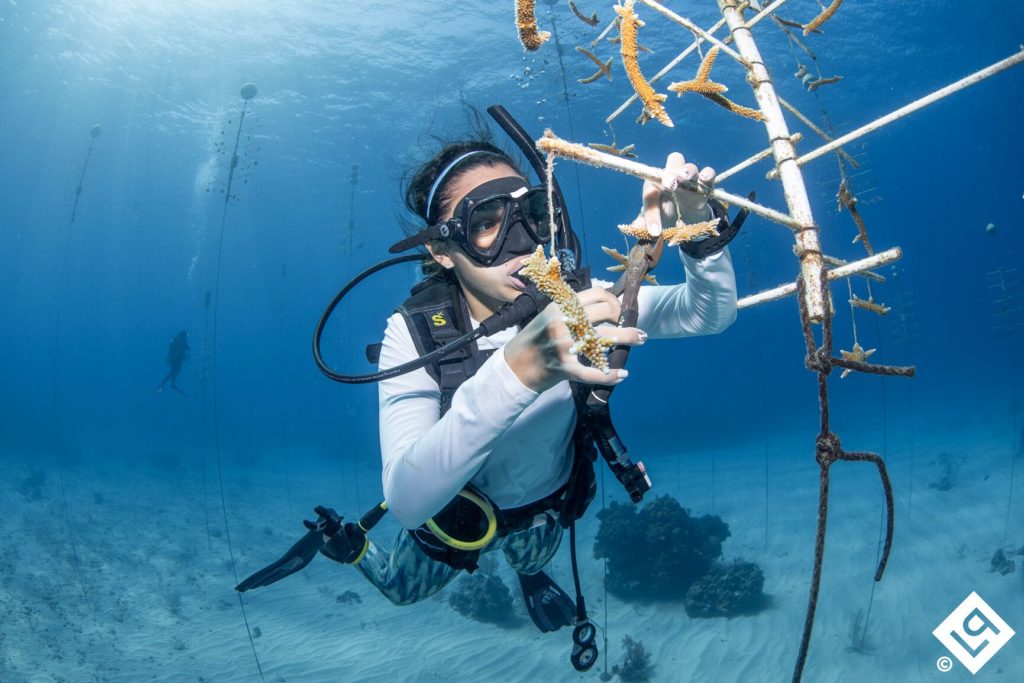
How YOU can get directly involved – Roatan’s Coral Restoration Certification
For those passionate and interested in learning how to maintain the nurseries and plant corals back on the reef… this certification course is for you!
FIRST – Roatan’s Coral Restoration Certification course will start with a four hour classroom session where divers are provided a background on coral ecology, coral stressors, the and the procedures used in maintaining coral trees, and outplanting and monitoring coral.

NEXT – you will complete two open water dives.
First dive will be to maintain the coral nursery and the basics of how to clean coral trees. With the second dive to either outplant coral, monitor coral health, or install coral trees depending on the needs of that time!
FINALLY – Once successfully completed, you will be issued your RMP Coral Restoration card and be certified to continue with any volunteer efforts you wish. Just visiting? That is fantastic and we so encourage you to get involved in the program and experience hands-on coral restoration to inspire you to continue to engage in ocean conservation and awareness.
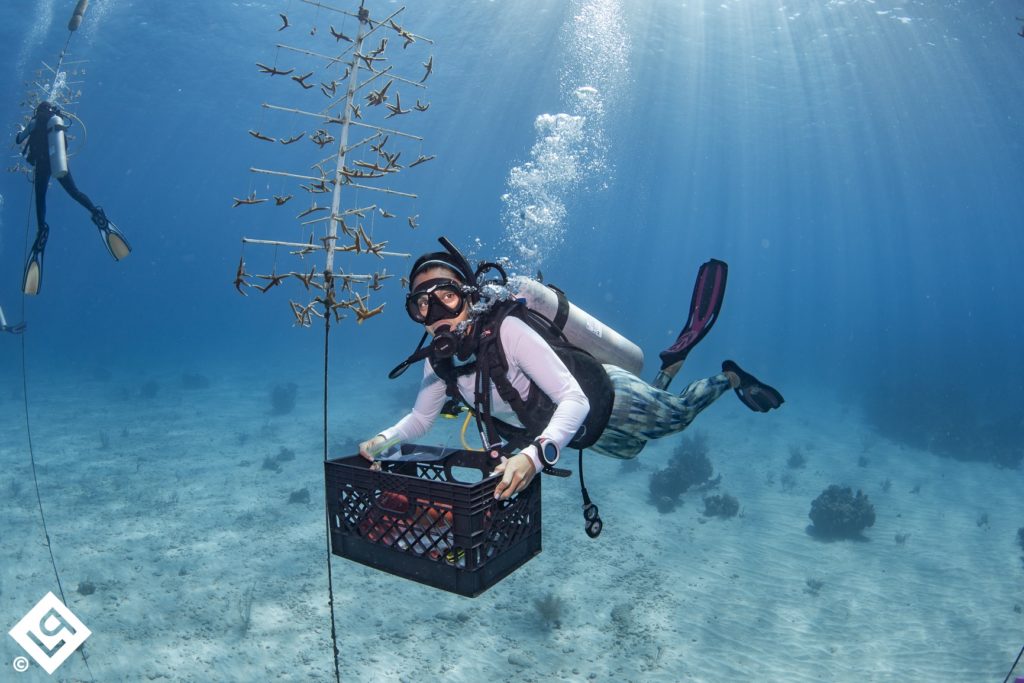
And you never know what type of critters you will spot during your time under water! Check out this squid squad that decided drop by the nursery.;.
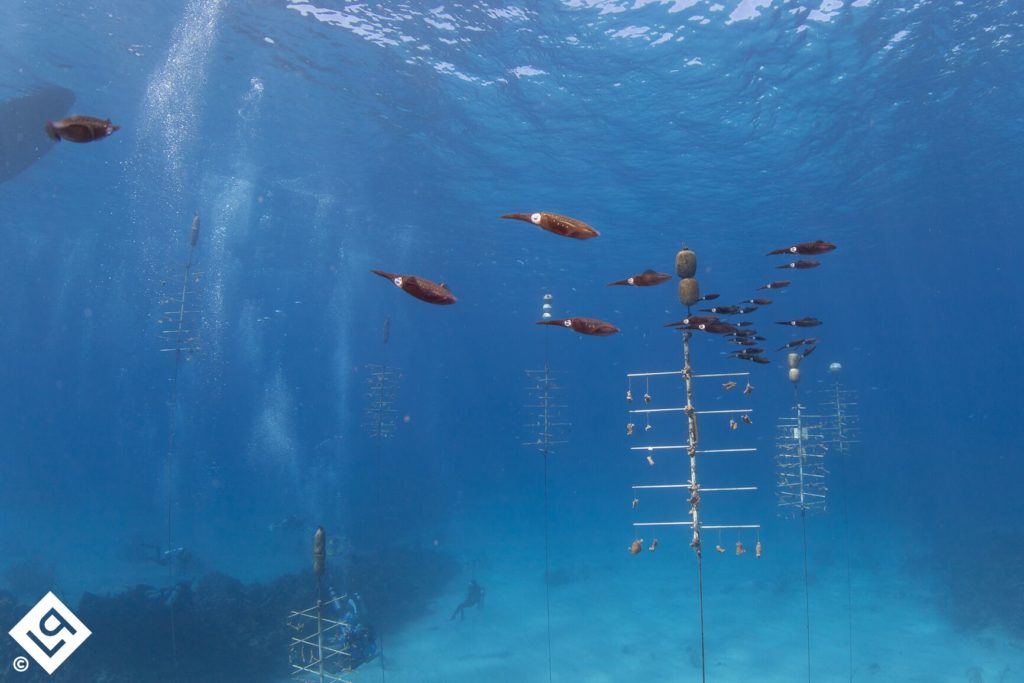
How do I Sign Up?
The RMP Coral Restoration Certification class is offered by us here at Coconut Tree Divers! Part of the certification course goes directly to the Roatan Marine Park to protect and restore Roatan’s coral reefs.
Please contact us at Coconut Tree Divers for a list of available dates and prices! We cannot wait to work with you!
*Please note you must first have your open water certification
For further information check out RMP’s Coral Restoration page here.
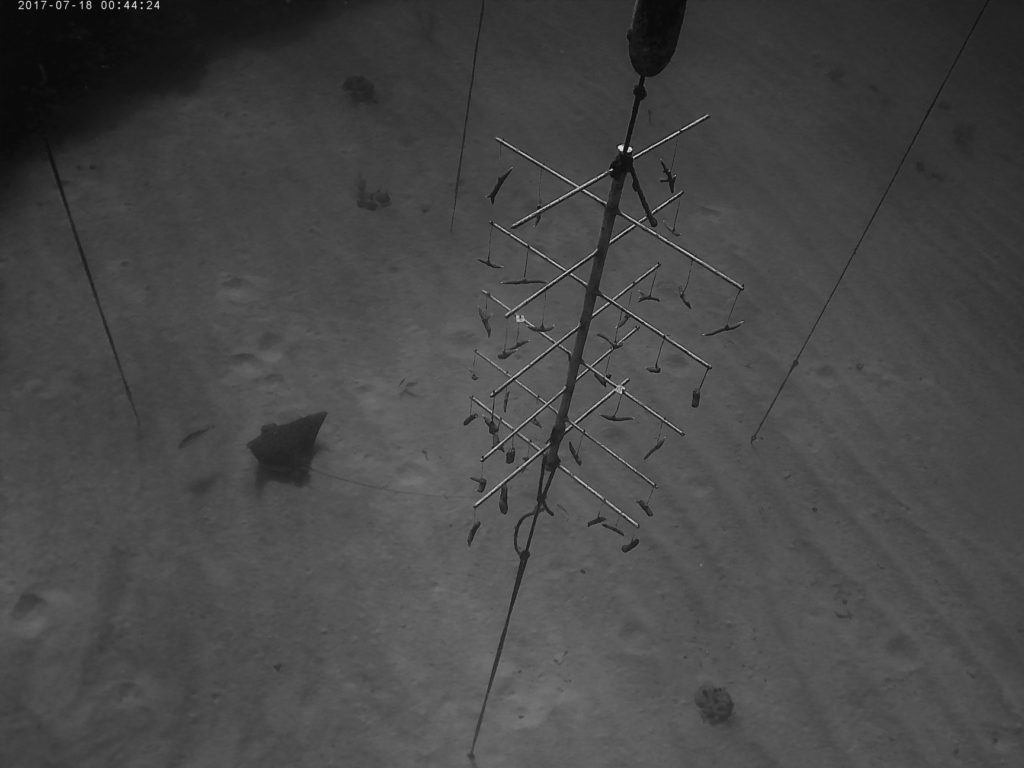
Eagle Ray spotting!
